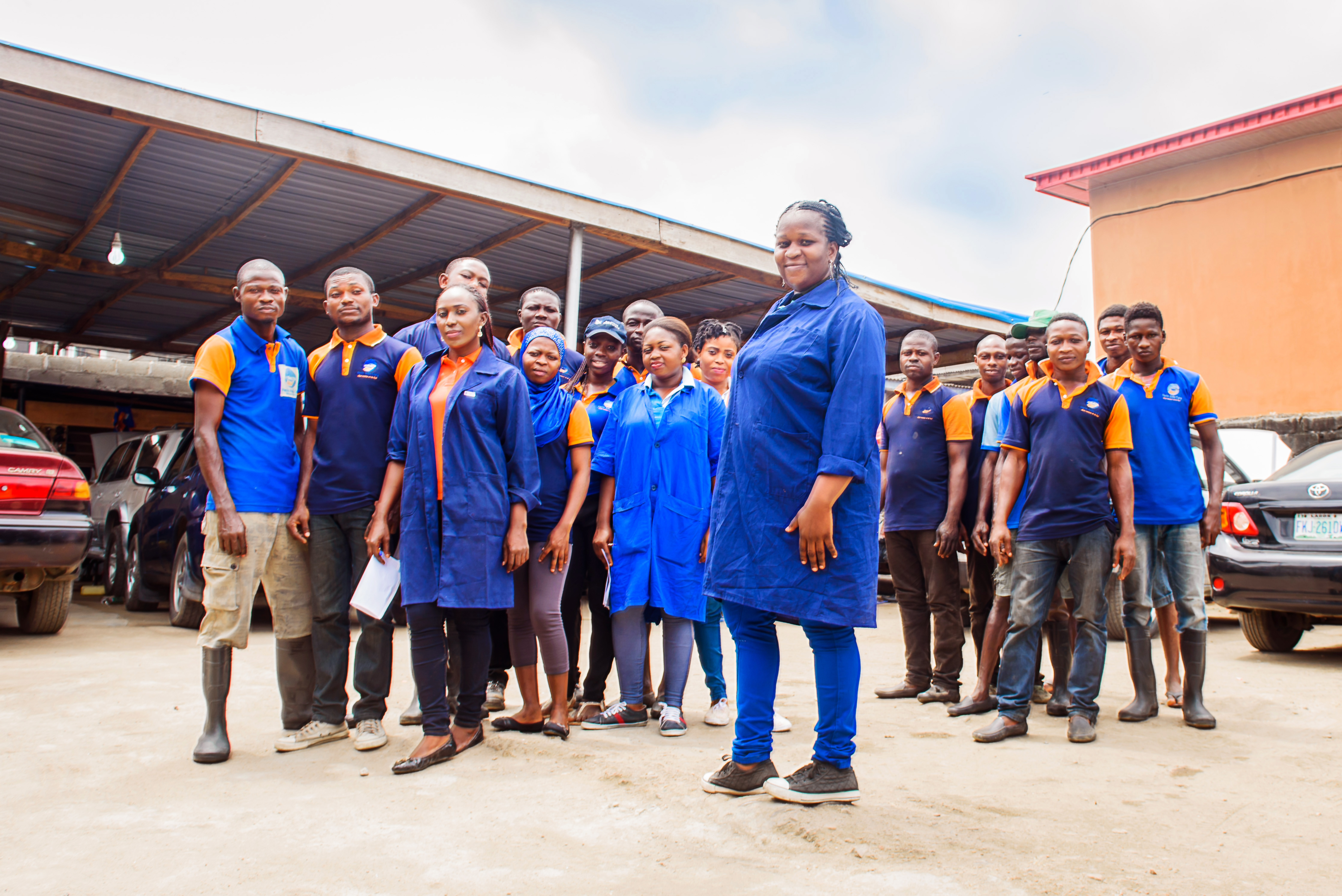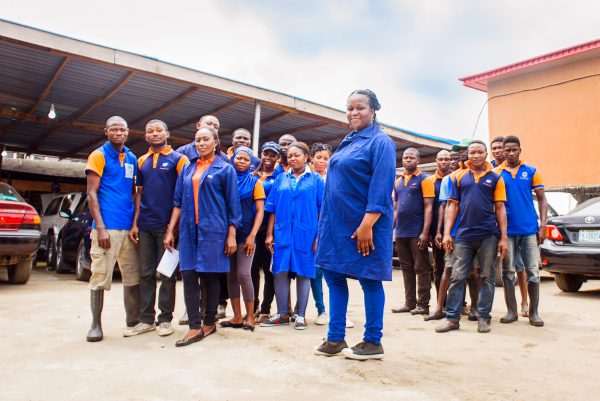
Womenpreneurs: The Right to do Better than ‘Just o.k’!
Originally published here
African Women raise figures and eyebrows thanks to the increasing role they play via entrepreneurship. Managing their companies and resources, providing jobs, improving their communities, leaving autonomy values legacy for generations to follow.
“We African women do carry baskets of commodities on our heads. But we also build businesses and organisations that employ hundreds.” Theo Sowa.
We are confronted with economic crisis, lack of financial support, supply chain disruption, tough competition from monopoly groups, and stiff contract management demands from our main clients, to name but a few of our challenges.
In spite of hurdles, women play a huge role in the continent’s tomorrow, and can write part of the brighter history which is enfolding right before our eyes. We cannot overcome external challenges if we don’t toughen up our internal competencies, such as sound financial literacy, skills to make well-informed contract and procurement decisions, and leverage at the negotiation table.
We have this tremendous capacity, in spite of difficult access to education and gender opportunity, of identifying exactly what is needed in our communities, and how to make profit out of it. The African women entrepreneurship pool is hence the highest one across the globe, standing at a startling 26%. As the recent Female Entrepreneurship Index shows, unleashing our business power can drastically boost the continent’s economy. We are changing what has been said about our role, our capacities, our possibilities.
While many ‘wannabe entrepreneurs’ are spending more time marketing selfies over social network, strolling between conferences, or knocking at ministerial doors left closed, turning gathering events into ego-boosting or politically orientated talk-shops, some other sisters out there are kicking it with powerful on the ground action, digging their delicate and callous fingers into the dirt . They have realised that our land desperately waits for them to express massive manifestation, creating a long-lasting breed of Business Excellency that make sustainable development more than a bullet-point on a corporate social responsibility statement.

From female mechanics company Neni Autocare taking the automobile industry by storm in Nigeria, to the luxurious creativity of Ghana’s Christie Brown, women are breaking through the walls to produce maximum impact. As I admired CB’s summer collection, with its rich structures and patterns, I could not help but be marveled by women’s ability to beautify in everything they do, their culture, their identity, their ecosystem resources, while contributing to their environment. And all of us are enriched by it.
Unashamedly, women nurture their societies, paving the way for generations to come and creating wealth.
It takes Movement to generate the progress Africa needs. We must move from where we are, to where Africa happens.
How are warriors like Agboneni Osaduwa, Aisha Oboubi, making it happen?
Go “au-delà’: beyond your comfort zone
Getting outside the comfort area is what propels the first hint of Excellency in a human being, because venturing into an unknown environment triggers in us an outrestch of our capacities and effort.
“So that no one else but us tells our story ». This quote from Ele Asu, the sharp host of Canal + tv “Reussite”, a stellar programme on African entrepreneurship, sums up where we are meant to head as Africans. It sums up all my hopes to jump ropes!
Getting out of your zone means increasing the quality, not only the quantity, of your work. The extent of the knowledge you acquire.
Showing that Africa is setting up a world-class enterprise spirit.
We raise our standards,
And increase our competencies,
To do more than just ok.
On the wall of prosperity has, for a long time, been written the destiny of our continent. It is only up to us to grab in the Now what we want to make out of our beaux-arts economy.
The ones who will make it to the top list of successful nations builders are those who have understood the need to refine their commercial competencies, technical skills, strategic flair, organisation management capacity, boldness.
Bilikiss Adebiyi-Abiola, CEO of Wecyclers, understood this. A software engineer with an MBA, an M.sc and B.sc from both prestigious Fisk University and Vanderbilt University, she could have settled for the comfort of a job in one of those IT firms. Nope. With a true vision of her potential impact, she started a social enterprise that operates in low-income communities by recycling waste. Today, Wecyclers deserves over 10.000 households, collecting recyclable waste, processing it and selling it, providing jobs to over 80 people- that is over 80 families, then, right? Speak of a clean impact! When you identify a lack that you are ready to fill out of your comfort zone, and prepare consequently, you can aspire to do better than just o.k!
Go to others: expand your influence by coming together
Business communities by joining hands through alliance partnerships, joint merge contracts, associations, cooperatives, can reach further in terms of production capacity, consultancy expertise securing, but also, in terms of and promoting an enabling environment. South African business mining mogul Brigitte Madebe, chairman of Mmakau Mining, understands very well the power attached to acting on the right platform as she played a significant role in developing the South African mineral and Petroleum resources development act.
Entrepreneurs cannot be dwarfed by the short-lived rewards of copy-pasting other systems to push their industries up. Coming together significantly increases our bargaining power. Shea butter export started via small communities women-led associations. Coming together can help africanpreneurs achieve extra competitive advantages, allowing them to explore cost leadership, mentoring, expertise, improved positioning.
It took morrocan women cooperatives effort to bring argan oil all over the world and accross any respectable cosmetics shelves. Sirébara Fatoumata Diallo, from Mali, has multiplied exponentially her profit opening her farm-fishing activity in a country suffering from shortage. As the leader of Mali agricultural women association, she trains women in rural development and production to transformation processes. Her Tank farming is lucrative, creates jobs and contributes to population healthy eating.
The most striking examples of business success during the 2015 AGOA conference held in Libreville, were from women who did not shy away from joining efforts to grow. Wony Tieminta, from Mali, was a legal expert until she decided to dig the earth. Today, she is the head of “Femmes en Action” (Women in Action), a cooperative that produces and transforms locally-grown cereals and seeds into cakes, ready-to-cook sauces and buns. She also manages her own activity in fish-farming and market gardening. I am already thinking of cutting my own nails and jumping in when I realise the huge potential we could make out of a continent that holds 60% of the arable land in the world. If we do not exploit it, other multinationals will do, and charge us to eat the product of our land.
Lionesses of Africa entrepreneurship community, based in South Africa, is accomplishing wonders in terms of knowledge-sharing, capacity-building and business positioning reinforcement. The praised initiative’s CEO, Melanie Hawken, resumed during a recent workshop: “It is all about cooperation!”
Dare to use the words: Mentality Change!
Women have always been a valuable instrument of socio-economic activities, but they never quite reaped the benefits from their sweat, standing at mere execution point.
Accross the continent, women are redefining Africa by redefining their power. It is not a brutal one that destroys or threats. It is a subtle yet consistent momentum that builds, raises, creates wealth, in a sustainable manner.
Pauline Mona Tshiebe Kayoko, from Kinshasa, in DR Congo, leaves you speechless when you read her story. From selling peanuts and plantains, she became the successful CEO of Monaluxe SPRL. Starting with a petrol station, she quickly figured out how to add up to her figures by adding superettes next to the stations that met the exact specific needs of the customers. Freight services, rail freight, superettes, snack shops, properties developpment, added to the service stations, have made Monaluxe a dominating conglomerate!
Agriculture is sometimes considered a “poor people” activity. My mother used to tell me though, that the only rich ancestor we had during the colonial period, was my great-grandfather, a producer of cocoa and sugar cane. I think agricultors are the Rockfellers of tomorrow in Africa.
The centre of global economic gravity is tilting slowly but surely towards Africa. This Africa must be prepared to go out of its way to secure exceptional results and make up for lost centuries.
Speaking of mentoring and networking earlier, let’s move away from the tendency to think that by bringing down a fellow woman’s light, we can shine brighter. Actively supporting each other and commanding other women’s success in prayer can only benefit us all. We need better access to education and mentoring mindset to achieve this. Ethel Cofie, of Ethel Technology, is mentoring others through her technology startup school in Ghana with great impact.
Olaudah Equiano wrote, over 300 years ago: “Populations, the bowels and surface of Africa, abount in valuable and useful returns; the hidden treasures of centuries will be brought to light and into circulation. Industry, enterprise, and mining, will have their full scope. This I conceive to be a theory upon facts, and therefore an infallible one.”
As the vibrant Financial Accounting expert and Ellipsis Conseil CEO, Vanessa Adande, from Gabon, once said: « SME’s and entrepreneurs are the weakest link. Without development strategy and sound financial data, it is troublesome, not to say impossible, to set up a development strategy, and stand in front of possible investors or financial institutions. Part of our job is to provoke greater awareness.”
2016 World Economic Forum stated: “Unless women are to make a full contribution, Africa will never master the Fourth Industrial Revolution.”
We have the right to do better than just ok.
We are condemned to succeed!
